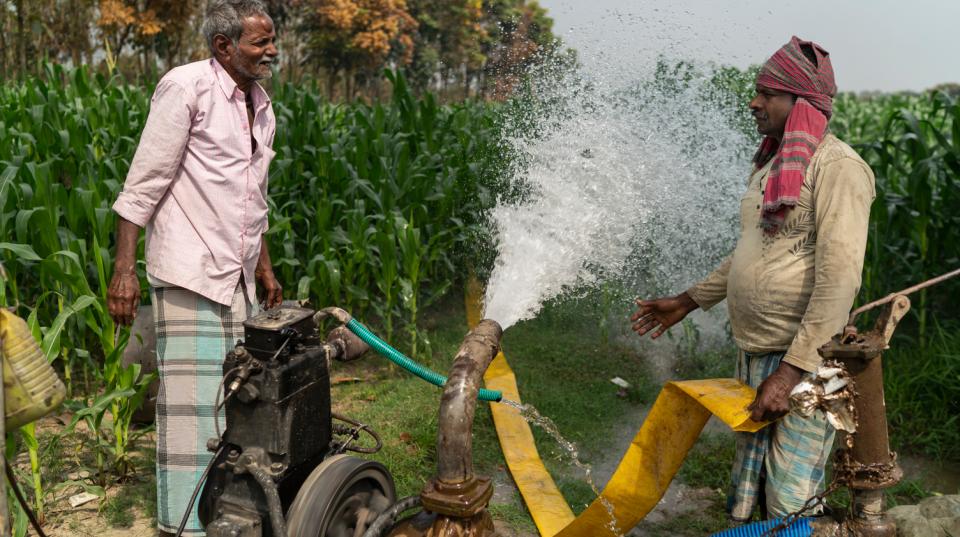Overview
This project is part of the DFAT/ACIAR-funded Sustainable Development Investment Portfolio (SDIP) program and is contributing to a better understanding of the food-energy-water nexus in West Bengal.
The Indian state of West Bengal is the largest rice and vegetable producing state in India, consisting of 7.1 million farm families of which 96% are small and marginal farmers, with average land holding of only 0.77 ha.
The Government of West Bengal undertook two important groundwater policy reforms - universal metering of electric tubewells in 2007 and change in groundwater law in 2011 - which removed barriers for electrification of groundwater structures. Both these reforms have had multiple impacts.
This project will undertake rigorous evaluation of impacts of groundwater policy reforms on agricultural and groundwater sectors with a special emphasis on sustainability issues and draw lessons for other states/countries in the Eastern Gangetic Plains (EGP) region.
Findings feed into various parts of the SDIP program, in particular to the Foresight work being led by IFPRI, which seeks to understand the issues and trends affecting food systems in the EGP. Additionally, this project will interact with LWR/2018/104 which is working on effective institutional arrangements for inclusive, sustainable food systems, with one focus area being effective institutions to promote access to water for irrigation.
Expected outcomes
- Prove that better access to groundwater, facilitated by electrification of wells and tubewells will lead to increase in irrigation coverage, decrease in costs of irrigation, and therefore further intensification of irrigated agriculture and cropping intensity.
- Contribute to better food security through two pathways; an increase in production of food grains, and improvements in incomes for buying nutritious food.
- Meet the objective of better natural resource management and climate resiliency through a better understanding of impacts of accelerated groundwater development on groundwater resource conditions.
- Provide answers as to how groundwater resources in an area with rich alluvial aquifer and high rainfall behaves in view of increased intensification of use.
- Directly benefit the state government of West Bengal to allow fine-tuning of their policies and indirectly benefit farm households who derive their livelihood from groundwater-irrigated agriculture.





